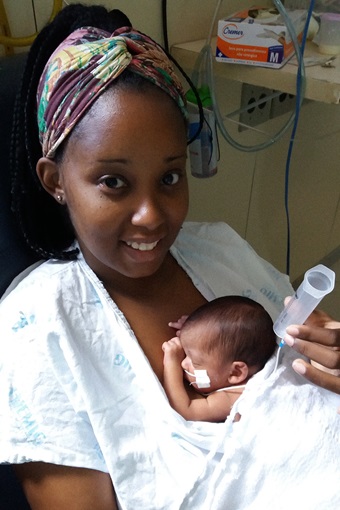In November 2022, in a landmark decision, Brazil's Supreme Court extended paid maternity leave for mothers whose childbirths are followed by prolonged hospitalizations. This new law has benefited benefit mothers of preterm and medically fragile newborns by starting the 120-day leave after hospital discharge, promoting both mother-baby bonding and breastfeeding. This change was the result of advocacy by the Brazilian Parents of Preemies’ Association and civil society groups who highlighted the struggles of families with preterm babies.
 This decision reflects years of campaigning with Brazilian ministries and officials to support families in difficult situations. The historic change showcases the power of organized advocacy, as groups persistently engaged legal and political avenues to drive policy reform. This victory marks a significant step toward broader maternal and family rights, underscoring the necessity of policies that adapt to the unique needs of working mothers.
This decision reflects years of campaigning with Brazilian ministries and officials to support families in difficult situations. The historic change showcases the power of organized advocacy, as groups persistently engaged legal and political avenues to drive policy reform. This victory marks a significant step toward broader maternal and family rights, underscoring the necessity of policies that adapt to the unique needs of working mothers.
For parents of preemies, who typically endure longer hospitalizations than full-term babies, this extension reduces stress and financial strain, offering a more supportive and humane approach. This change also advances gender equity in Brazil’s workforce, as the flexibility to care for vulnerable newborns ultimately allows mothers to participate more productively in the labor market.
Previously, mothers on formal work contracts faced the emotional strain of caring for their infants during long hospital stays with limited time to recover post-discharge. Now, the law allows mothers additional time to bond with their babies and manage the emotional and physical demands of prematurity without jeopardizing their careers.
For Brazilian society, the impact of this law goes beyond maternal benefits—it represents an evolving labor landscape that respects motherhood and childhood. It’s a model of how policy, when informed by compassionate advocacy, can better align with the real-world needs of families, enabling them to thrive both personally and professionally.
For further details, read the full interview with Denise Leao Suguitani on glance-network.org.
Photo credit: Gláucia Galvão (@glauciagalvaobh)

.png?sfvrsn=6d0e27cd_1)



